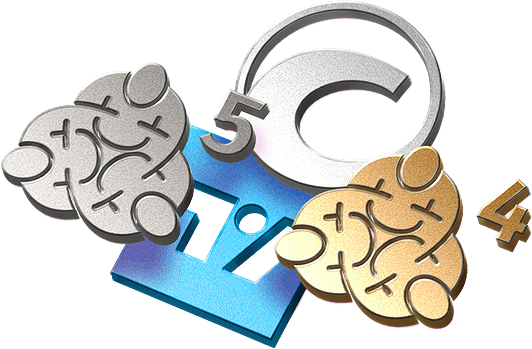Start trading the global markets with a regulated broker
- 10,000+ financial instruments
- Cutting-edge trading platforms
- Spreads as low as 0.0 pips
- 24/7 multilingual Customer Support

Trade the world’s leading stock exchanges with Index CFDs across powerful platforms.
FTSE 100, S&P 500, Nikkei 225, Hang Seng, GER 40 are important stock indices. Their performances are always at the forefront of financial news updates. FP Markets provides exposure to a wide array of global stock indices through Index CFDs on world-class trading platforms.

Low-cost, competitive margins, starting at just 5%.
With a US$1 per point movement exposure, cash index contracts allow you to tailor your position size.
The cost of cash index contracts is built into the bid-offer spread of our Standard Account type.
Diversify your portfolio by trading Index CFDs and hedge your risks.

Stock market indices measure a specific stock market. They represent the value of a country’s group of stocks. Investors use the calculated value of a stock index as an indicator of the current value of their component stocks. Every stock exchange has a benchmark stock index, while some have several.
If you do not want to invest in several different shares belonging to a specific stock exchange, trading Index CFDs may be an option to add to your portfolio. CFDs are financial derivatives that track the price movements of an asset without the trader having to own the asset itself. Trading CFDs on indices enables traders to open large positions with a small initial capital, thanks to leverage and low margin requirements. Traders can go long or short depending on their goals and make use of deep liquidity as well as tight spreads which are prime characteristics of major indices.
| Symbol | Product | Standard A/c | |
|---|---|---|---|
| Min | Avg | ||
| AUS200 | Australia 200 Index vs Australian Dollar Cash | - | 1.31 |
| CHINA50 | China A50 Index vs US Dollar Cash | - | 7.58 |
| EURO50 | Euro 50 Index vs Euro Cash | - | 2.11 |
| FRA40 | CAC 40 Index vs Euro Cash | - | 2.41 |
| GER40 | German 40 Index vs Euro Cash | - | 1.27 |
| HK50 | Hang Seng Index vs Hong Kong Dollar Cash | - | 5.88 |
| ITA40 | Italy 40 index vs Euro Future | - | 15.00 |
| JP225 | Japan 225 Index vs Japanese Yen Cash | - | 4.79 |
| SPA35 | Spain 35 Index vs Euro Cash | - | 5.70 |
| UK100 | UK100 Index vs Great Britain Pound Cash | - | 1.52 |
| US100 | US Tech 100 Index vs US Dollar Cash | - | 1.28 |
| US30 | US 30 Index vs US Dollar Cash | - | 1.12 |
| US500 | US 500 Index vs US Dollar Cash | - | 0.46 |
| USDX | USD Index Basket vs US Dollar Future | - | 0.05 |
| VIX | VIX Index Cash vs US Dollar Future | - | 0.16 |
| Available Indices | ||
|---|---|---|
| NASDAQ 100 E-Mini | DJIA E-Mini (CBOT) | Mini SPI 200 |
| Nikkei 225 (CME) | DAX Index | SPI 200 |
| S&P 500 E-Mini | EURO Stoxx 50 | |
When holding a Long position on a Cash Index CFD contract that includes dividend-paying stocks, you will be entitled to an amount equal to the amount based on the number of contracts you hold after the close of the business day before the ex-dividend date.
Conversely, if you hold a Short position in a Cash Index CFD which pays a dividend, you will be required to pay an amount based on the number of contracts you hold after the close of the business day before the ex-dividend date. These adjustments may be made either as a cash adjustment into your MetaTrader 4 (MT4) or MetaTrader 5 (MT5) trading account or included in the overnight swap (rollover) rate.

The Dow Jones Industrial Average, often referred to as ‘the Dow’, is a price-weighted index of the 30 largest companies listed in the US. Salesforce, Boeing and Walt Disney are among the companies that make up the index.

The S&P 500 tracks the 500 largest US stocks and is weighted by market capitalisation. Well known companies on the S&P 500 include Amazon, Apple, Microsoft, Alphabet and Tesla.

The FTSE 100 is made up of the 100 largest stocks by market capitalisation on the London Stock Exchange. It is commonly referred to as the Footsie and includes major financial institutions such as Lloyds and Barclays.

The ASX 200 tracks the performance of the 200 largest publicly listed companies on the Australian Securities Exchange (ASX). Maintained by S&P Dow Jones Indices, it is widely regarded as the primary benchmark for the Australian equity market.

Several factors can influence an index’s price, including:
Significant price movement in stocks included in a particular index could be a reason for a change in the index’s value.
Financial news updates and reports can affect stock markets and benchmark indices. Inflation metrics, unemployment reports, and monetary policy decisions are some of the sets of data that can influence global markets.
Elections, political crises, and changes to trade relations are among the political factors that can impact financial markets and key components such as indices.
The addition or removal of stocks from an index can cause fluctuations in its value.
Changes in regulatory frameworks or technological breakthroughs could influence company valuations of a specific index sector.

Index CFDs allow traders to speculate on both rising and falling global markets. Traders can make use of fluctuating indices by opening long or short positions depending on the market outlook.
Indices can be an effective tool for hedging portfolio risk. For example, if your portfolio consists of a specific sector’s shares, you can open a CFD position on a relevant index to balance potential losses from market downturns.
Index CFD trading allows traders to gain exposure to global markets without having to invest in individual stocks. For instance, Australian traders can access global indices like the GER 40 or the Hang Seng Index to diversify geographically.
One of the prime characteristics of Index CFD trading is leverage; this allows traders to manage larger positions with a smaller initial margin. Risk management is essential when trading with leverage.
One of the ways to trade indices is through Index CFDs on an online trading platform. Index CFDs allow traders to speculate on indices’ price movements without owning the underlying stocks. FP Markets offers Index CFD trading via the MetaTrader 4, MetaTrader 5, and cTrader, TradingView, Iress and Mottai trading platforms.

Indices are an important part of global investment. They are used as a benchmark to gauge the performance of an overall market, or a specific sector of a market. Indices show trends and changes in investing patterns. Calculated using an array of different methods, investors often use them as part of their trading strategy.
Trading Costs: With CFD trading you do not take ownership of the underlying asset. This reduces the overall costs associated with trading.
Less Volatile: As indices are made up of a number of different stocks, they are not as susceptible to sharp changes in value.
Leveraged Trading: Enables traders to gain larger exposure to Indices by depositing only the margin required to open the trade, rather than the full value of the position.

By registering, you agree to FP Markets’ Privacy Policy and consent to receiving marketing materials from FP Markets in the future. You can unsubscribe at any time.
Quick Start & Resources
Markets
Tools & Platforms
Trading Info
About us
Regulation & Licences